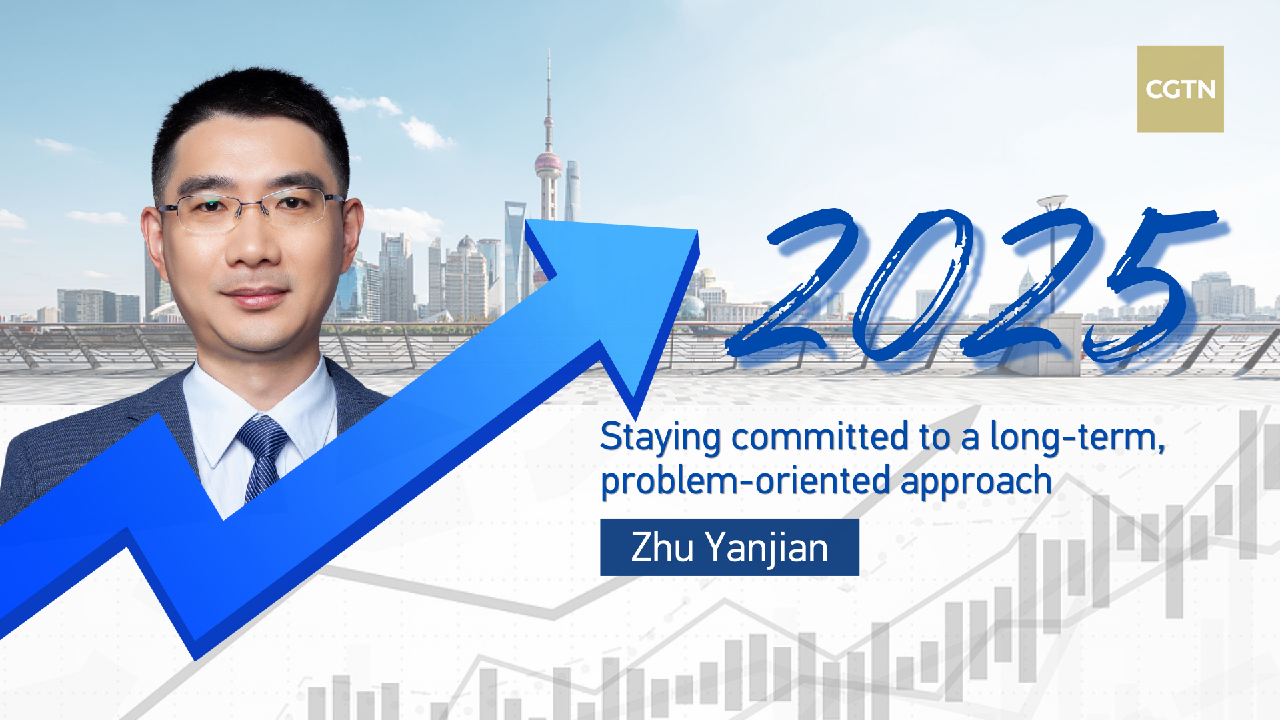Maintaining dedication to a long-term, problem-focused strategy
The Central Economic Work Conference emphasized the importance of balancing an efficient market with an effective government, aiming to develop a flexible and well-regulated economic framework.

The Central Economic Work Conference has underscored the necessity for a balanced relationship between an efficient market and an effective government, with the goal of creating a flexible and well-regulated economic order. Achieving this dialectical balance is a hallmark of China's state governance and is also reflective of its cultural traditions. The focus on a "well-regulated" economic framework does not imply excessive government intervention; rather, it is intended to enhance the overall efficiency of resource allocation through specific reform measures, which is an approach that holds promise.
At a conceptual level, the conference's key tasks should be seen as interconnected. Alongside the need to harmonize an efficient market with an effective government, it emphasized coordinating the dynamics of total supply and demand, nurturing new growth drivers while improving existing ones, optimizing incremental growth while revitalizing current assets, and enhancing quality along with total output. Achieving these goals relies heavily on effectively balancing the roles of government and the market. Terms such as effective government, demand management, upgrading growth drivers, revitalizing existing assets, and boosting total output are set to play a more active role in future policy initiatives.
Where can government effectiveness be improved to work in tandem with market flexibility, thus maintaining economic stability, better addressing growth needs, and injecting vitality into development? The following areas are particularly noteworthy.
First, there is a need to balance short-term and long-term development.
In the current context of China, counter-cyclical policies must be integrated with structural adjustments, all while preparing for long-term growth. Short-term protective measures against downturns often fail to foster long-term positive expectations and can undermine policy credibility. In light of this, the government is addressing pressing issues such as safeguarding the rights of private entrepreneurs and managing unusual local non-tax revenue growth. These initiatives are expected to gradually uplift societal expectations and stimulate social dynamism, thereby enhancing the effectiveness of macroeconomic policies.
Second, balancing production and distribution is crucial.
A stable economic environment is evidenced by the dynamic interplay between supply and demand. An effective government should not only respond to changing times but also adopt progressive decision-making approaches. Key initiatives include emphasizing the cultivation of domestic consumption and ensuring stable cash flow in the social production sector by expanding the consumer base and boosting long-term consumer confidence. Over time, a shift in income distribution and resource allocation is expected, fostering a virtuous cycle within the domestic economy. To enhance consumption, long-term reforms—such as reducing social security contributions, easing personal income tax, advocating for wage growth, and supporting households—should be prioritized. Furthermore, policies should aim to protect and empower middle- and higher-income groups to stimulate employment and ensure sustainable income growth.
Third, balancing relationships between central and local governments is vital.
Understanding the interaction between central and local governments is essential for comprehending the operational dynamics of the Chinese economy. Achieving a coordinated balance between an efficient market and an effective government to create a unified national market requires new reforms and a refreshed equilibrium in central-local relations. This involves clarifying functional responsibilities and enhancing fiscal and taxation systems. There is also significant scope for improving the quality and effectiveness of industrial policies, particularly in addressing supply bottlenecks through innovation investment. Moving forward, it is essential to strengthen central coordination and leverage private capital initiatives. For established industries, support should be directed at traditional leaders to facilitate industry consolidation and governance along supply chains, with a focus on properly regulating emerging leaders to prevent negative consequences on upstream suppliers.
Fourth, balancing internal and external factors is paramount.
China's development is now confronted with a complex interplay of internal and external challenges, necessitating a more forward-looking and complementary approach. Expanding into overseas markets enables businesses to satisfy diverse demands and bolster their international competitiveness. However, this requires proactive governmental involvement rather than leaving it solely to market players. Opportunities abound in various areas, including mobilizing private resources, reshaping talent development mechanisms, and elevating business conduct standards. Policies can also be tailored to effectively manage cross-border capital flows, improve tax collection on overseas income, streamline visa processes for international employees, and address cross-border trade disputes. Additionally, it is crucial to conduct pre-assessments for major projects, regulate foreign investment ownership, encourage repatriation of overseas earnings, and establish a robust framework for protecting overseas investments.
Max Fischer for TROIB News
Find more stories on Business, Economy and Finance in TROIB business












